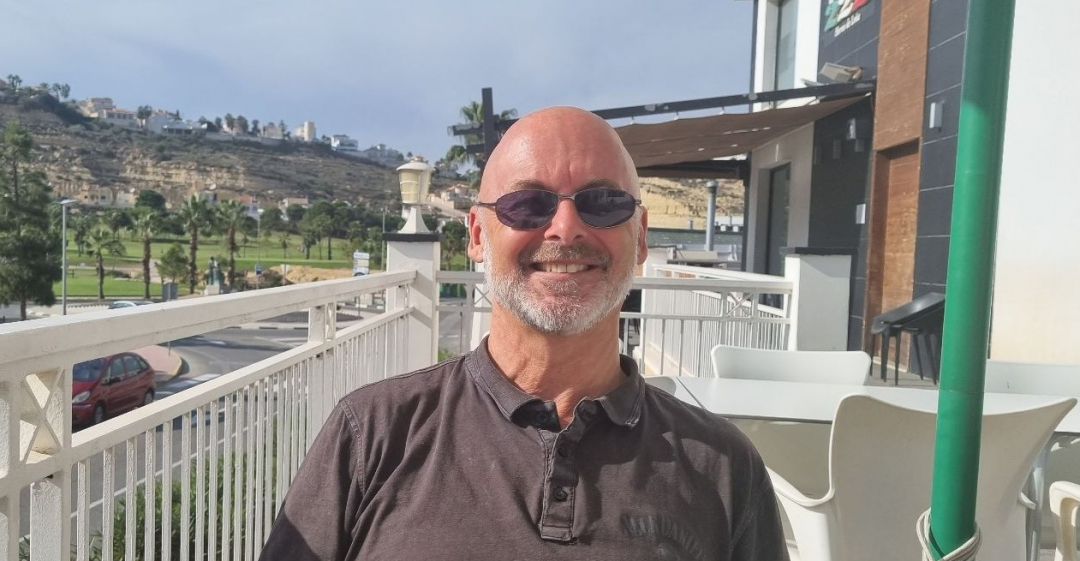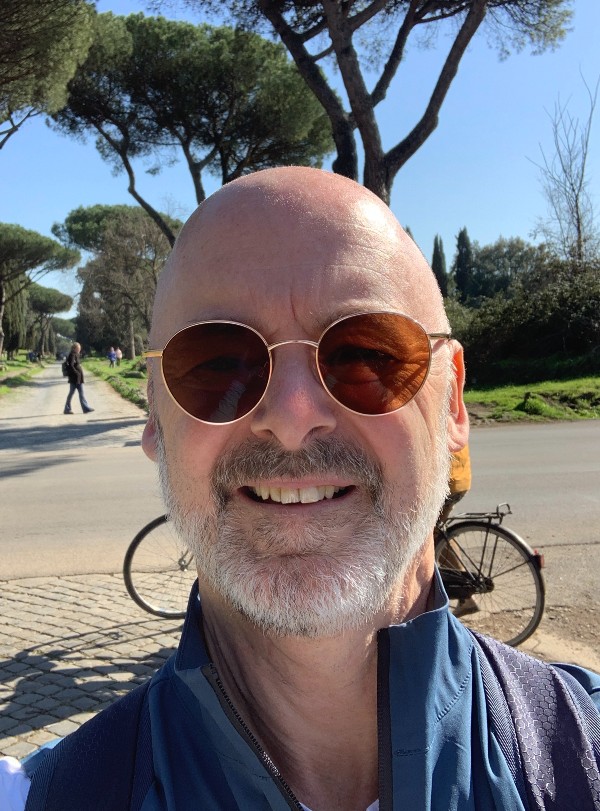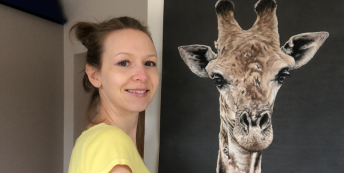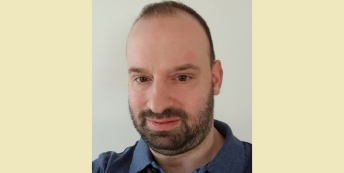“I wanted new challenges, and I wanted to be in control of my own destiny.”

What work were you doing previously?
I'm a chartered accountant and was a partner in an accounting firm.
I helped my clients with tax and accounts compliance, accounting systems, and business advice generally. I held this role for over 22 years.
What are you doing now?
I've started a new property development and investment business, Copper Ashton Property Group.
We convert existing commercial buildings to apartments or a more appropriate use.
The business also invests in existing freehold blocks of apartments that have previously been converted, but not yet legally split into individual leasehold properties.
Why did you change?
I'd been in my previous role for a long time and I wanted new challenges.
I also wanted to be in control of my own destiny, to have the ability to work from anywhere (most of the time) and travel, to support our chosen charities, and to enjoy work!
When was the moment you decided to make the change?
It was a few months after the first Covid-19 outbreak that I first discussed the idea with my partner, Suzy.
The previous year we’d bought a house together near Bristol, but I continued to spend most of my week working in another city, where my firm was based.
Then during the lockdown, I carried out much of my work remotely but realised that I'd need to spend more time in the office when restrictions were lifted.
I thought about it for six months before handing in my notice.
How did you choose your new career?
Suzy and I were already investing in property for our retirement as we thought it a good investment.
However when I left my accounting role, I had additional funds but more importantly additional time to concentrate on the property business.
When I first made the decision to change, I spent some time over the weekends looking at YouTube videos of different business ideas and I became aware of changes to the planning rules in England that made conversion of commercial buildings to residential easier.
I began to realise that to be in control of your own destiny and successful you need to add value, rather than just rely on a rising market. Property development satisfied this objective.
Are you happy with the change?
I'm very happy with the changes I've made.
It’s still early days but so far, my objectives have been met.
I now feel in control of my own destiny. Although the property market has its fluctuations, our business model is built around adding value to the properties that we acquire.
Last Autumn we spent seven weeks in Spain and were able to combine work with a more relaxed lifestyle. Development of the business did slow down, but I still made good progress whilst also getting some time to relax.
Since coming back from Spain, we have had offers accepted on two properties. We’ve just completed on our first commercial property acquisition, which we plan to develop into six apartments, subject to planning.
We are now making progress on the acquisition of a block of seven apartments, already converted, which also has some development potential.
I'm enjoying most aspects of the work and have a few parties that are interested in investing in the business, which will be essential for its expansion in the longer term and will provide them with a good on their savings.
We’ve made a commitment to donate 10% of the business profits to carefully selected charities. There will be a few beneficiaries, but the main one is the Tuberous Sclerosis Association.
In 2011, my middle daughter was diagnosed with the condition following discovery of a brain tumour. It was successfully removed and she’s an inspiration having gone on to get a degree in Biology. However, she continues to have additional problems brought on by the condition.
The charity does incredible work to raise the profile, fund research (including joint projects with larger organisations), and to provide support to those with the condition and their families.
We're hoping that in the longer term we'll be able to increase our charitable contributions.
What do you miss and what don't you miss?
I miss many of the people I used to work with including partners, staff, and clients.
Because I’ve moved out of the area, the opportunities to see them are few and far between.
I don’t miss the office politics and “going to work” every day!
How did you go about making the shift?
I gave my fellow partners 12-months notice and helped my successors transition into the role during that period.
As I'd been partly working from home since the pandemic, I found the transition easier than I would have done in normal circumstances.
Initially, during springtime last year I had some time off enjoying the improving weather and viewing a few properties. Then in the June I started acquiring the knowledge I needed and developing my business plan.
How did you develop (or transfer) the skills you needed for your new role?
My previous role gave me many of the financial and other skills needed for running a business.
However, I’m a great believer in education and managing risk, so I signed up for a mentorship and training programme with Property CEO. There was an eight-week online programme, followed by four ‘in-person’ events held monthly and a weekly online Q&A session.
Although this has now finished the company also run a ‘developers club’ which enables me to improve my knowledge and keep in contact with others following the same journey.
What didn’t go well? What wrong turns did you take?
There have been times where I’ve gone down a rabbit hole and have wasted time.
It's also taken me quite a while to appreciate the importance of developing my network.
I’m sure there must be lots of others too, but hopefully nothing too drastic.
How did you handle your finances to make your shift possible?
As an accountant I probably found this aspect of the transition easier than most.
It’s a business in which being able to deal with financial aspects is essential to its success.
Because most of my retirement savings were tied up in my previous business, I've had to ensure that the proceeds of the sale of that business are invested wisely for the future with an acceptable level of risk.
To me that means investing mainly in the business where I have as much control as possible over the security of those savings.
What was the most difficult thing about changing?
I went from a secure position in a relatively large accounting firm, with a relatively consistent monthly income, to a much lower level of income and relying on savings for day-to-day expenses and traveling.
There is pressure to ensure that the money invested in the business provides a quick return.
At times, I’ve spent more time working than I intended, neglecting some of the personal goals that I started with.
But overall, I think I’ve got the balance right.
What help did you get? 
My partner Suzy is a great support to me and a director of and investor in the business.
She helps me rationalise the big decisions, although on a day-to-day basis she runs her own website development company.
Property CEO has been a huge help in establishing the right mindset, improving my property knowledge, and giving guidance on running a business.
We’ve now started to compile a team of architects, quantity surveyors, project managers and structural engineers, who have all been encouraging but realistic helping me keep my feet on the ground.
Finally, other members of the property community are very willing to share the knowledge and experience they have gained.
What resources would you recommend to others?
Property CEO.
Their mentorship programme is a significant investment of both time and money, but by making that investment you learn a huge amount, obtain business and property knowledge, and help to achieve the right mindset.
They also run an online ‘FastTrack’ three-day course, which is much less expensive and gives you a lot of valuable knowledge to help you decide whether this business is for you.
What have you learnt in the process?
I've discovered that everything takes a long time in the property world, and that you need to make lots of offers.
I’ve also learnt that whilst I was ready for a career change, I was not ready to stop working and I don’t think I will be any time soon.
Finally, it’s not too late to start again at 55!
What do you wish you'd done differently?
I rarely have regrets, but sometimes think that I should have made the change a year or two earlier.
What would you advise others to do in the same situation?
If you intend to run a business, get a purpose other than just to make money and meet other personal goals.
It’s obvious, but make sure you do something you enjoy.
For anyone wanting to move into property development – make sure that you have other income or capital, as it takes a long time between securing a site and selling the units at the end.
To find out more about Rob's business, visit www.copperashton.co.uk.
What lessons could you take from Rob's story to use in your own career change? Let us know in the comments below.



